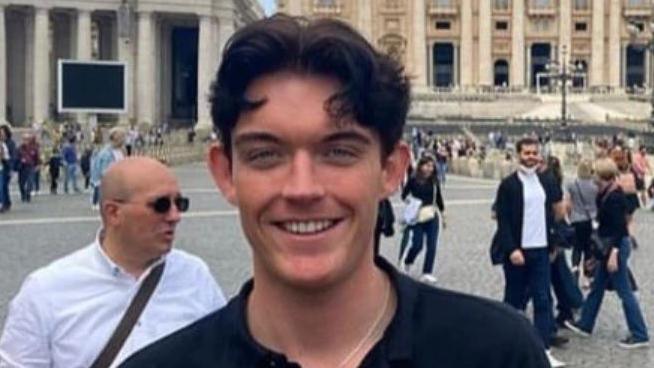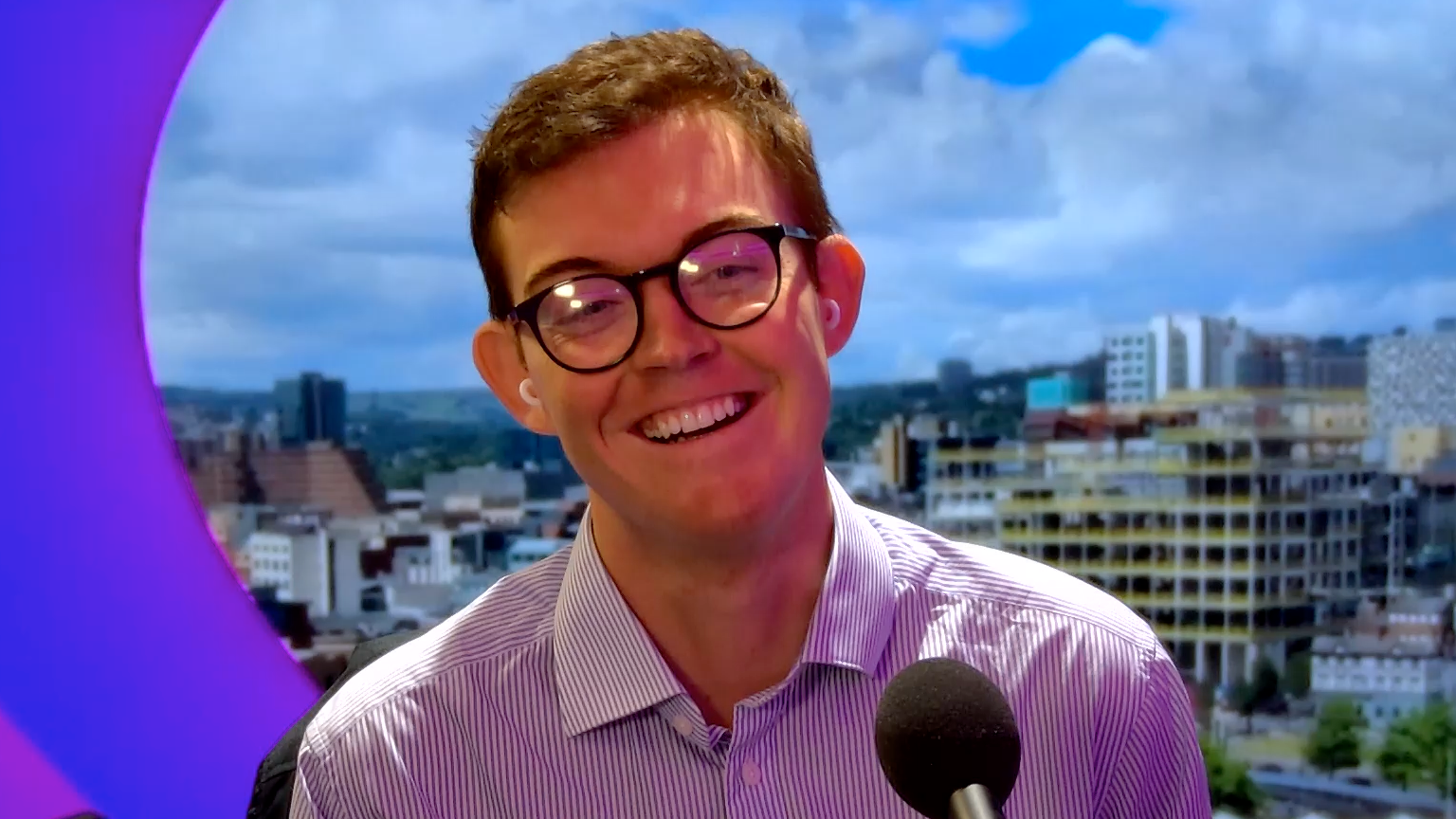'It won't save me but gives me hope for others'

Charlie Pearson was diagnosed with a brain tumour after suffering a seizure
- Published
A former civil servant who was diagnosed with an aggressive brain tumour said the development of a new drug had given him hope for other patients.
Charlie Pearson, 26, was diagnosed with a grade 4 glioblastoma, a fast-growing type of tumour, last year.
Researchers have now discovered a drug that could boost the effectiveness of chemotherapy to treat aggressive brain tumours.
Mr Pearson, who lives in Sheffield, has welcomed the news, saying: "I know this won’t save me, but I hope it will help other people."
Mr Pearson, who is originally from Essex, was first diagnosed with a grade 2 astrocytoma which later developed into a glioblastoma.
He is one of about 3,200 people in the UK who are diagnosed with a glioblastoma every year.
Mr Pearson said he received the life-changing diagnosis after suffering a seizure on the London Underground in 2023.
"It's just a tragic situation, you think 'why me?', I just can't actually believe it," he told the BBC.
"I was working in London and was flying professionally and then this happened."
Mr Pearson eventually had to give up his job and moved to Sheffield, where he now lives with his boyfriend.
The symptoms Mr Pearson experiences include seizures, fatigue and memory problems.
"I get very, very tired, and struggle with using my right-hand side," he said.
"I can't really find information that easily, I have to think about it and thinking about things gives me a seizure."

Charlie Pearson talked about his diagnosis on BBC Radio Sheffield on Wednesday
Scientists at Imperial College London have now identified a drug that could help with the treatment of aggressive brain tumours.
The team discovered that the drug, called FK866, boosted effectiveness of the chemotherapy drug temozolomide in both tumour cells in the lab and in mouse models.
According to Brain Tumour Research, external, people diagnosed with a glioblastoma live on average for just 12 to 18 months after diagnosis.
Mr Pearson said the research gave him hope for others.
"At present, glioblastoma patients don’t live long enough to see the effects of drugs and treatments," he said.
"That has got to change.”
While he said the diagnosis had been difficult to come to terms with, he was now "taking things as they come" and was "enjoying myself as much as I can".
Having just completed his first course of chemo and radiotherapy, he is due a scan on 5 September.
"Hopefully that shows stability but we are hoping for a bit of a reduction [in size]," he said.
"I hope I get some more time, I want to go on a cruise with my boyfriend."
Listen to highlights from South Yorkshire on BBC Sounds, catch up with the latest episode of Look North or tell us a story you think we should be covering here, external.